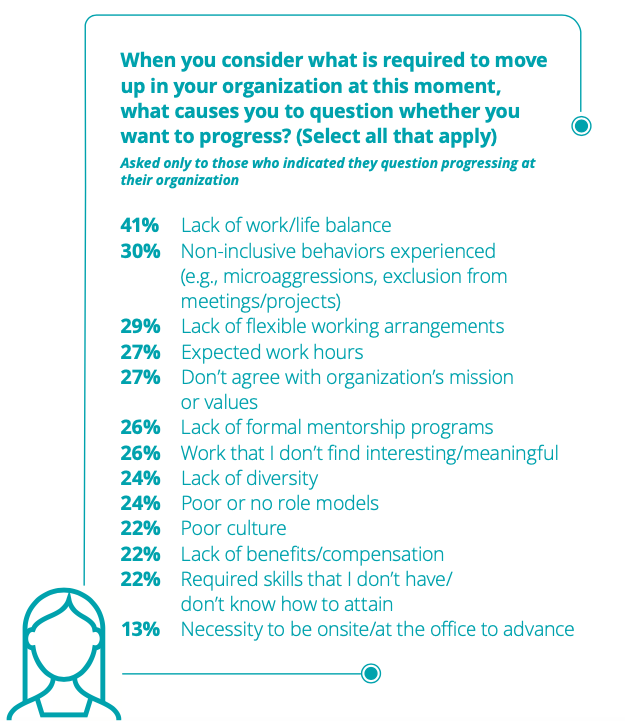Coronavirus: 70% of working women being held back in careers due to pandemic

The majority of working women have been held back in their careers due to the COVID-19 pandemic.
Nearly 70% of women who experienced negative disruptions due to the pandemic are now concerned about their ability to progress in their career, according to a new report by Deloitte.
Deloitte’s survey questioned nearly 400 working women across nine countries about how their day-to-day lives have changed and whether they believe these changes will impact their future careers.
It has brought into relief the threats to progress made to bring gender equality forward in the workplace in recent years.
One explanation: Lockdowns and shut-downs related to the pandemic have resulted in many women more frequently working from home: now, more than a third (37%), are working from home full-time versus just 1% before the pandemic.
This extra time at home is impacting in various ways: on the one hand, our survey reveals some women have more free time as a result of changes to commuting and travel routines.
READ MORE: COVID-19 widens gender savings gap, with women having a third less money
On the other, women are experiencing a number of extra responsibilities and commitments added on to their already busy lives.
This is true of a vast majority of women, whether they have caregiving responsibilities or not.

Among survey respondents, 89% said demands on their personal time and daily routine have changed due to the pandemic, with 92% of that group indicating that these shifts have had a negative impact.
Additionally, the number of women who say they are responsible for 75% or more of caregiving responsibilities (eg childcare or care of other family members) has nearly tripled to 48% during the pandemic compared with their caring responsibilities prior to COVID-19.
READ MORE: HSBC axes 6,000 jobs so far this year as cost cutting accelerates
Despite the negatives, amid the pandemic, many women remain loyal to their current employers — 32% plan to stay with them for two to five years, and 30% for more than five years.
Three in five women, however, question whether they want to progress when considering what they perceive is required to move up in their organisations at the current time.
Reasons cited for this are varied, with some pointing to pre-existing cultural factors or ways-of-working that may now seem even more dissuasive in the context of the pandemic.
While some of these factors may have been traditionally associated with being present in an office, these results indicate that they remain a concern during times of remote working.
Watch: How to negotiate a pay rise

 Yahoo Finance
Yahoo Finance 